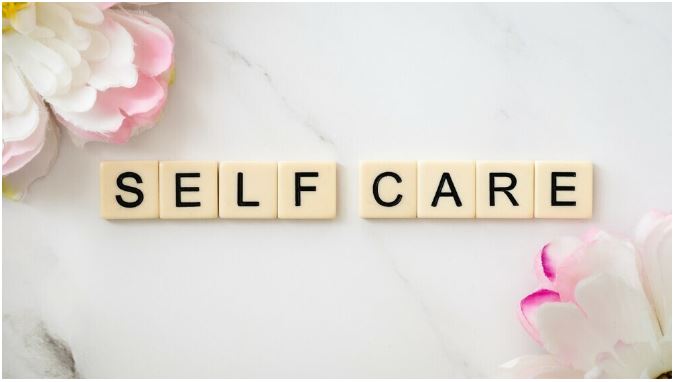Holistic Guide for Managing Stress + 9 Easy to Use Tips
Today, I’m kicking things off by delving into the world of stress because it’s a part of everyone’s life. You’re going to find out about how not all stress is created equal, which might be a surprise. Some stress can be invigorating and motivating — we call this ‘eustress’. But then there’s the kind we hear about more often — ‘distress’ — which can be overwhelming and disruptive.
Let’s break down what exactly stress is. It’s your body’s reaction to any change that requires a response. Whether it’s starting a new job, managing finances, or facing unexpected challenges, stress is the body’s way of protecting you. By preparing to take action, your body is essentially gearing up to face potential threats.
However, while a certain amount of stress can help in rising to a challenge, staying in that heightened state can take its toll. That’s where understanding stress and its various sources comes into play.
Do any of these sound familiar? Work deadlines, family responsibilities, personal health concerns, relationships, uncertainty, etc. Stress isn’t just about the big events. Even daily hassles like traffic jams or long lines can add to the stress bucket. Sometimes, I’ll wake up and just instantly start stressing about my day and it hasn’t even begun!
Whether you just need some strategies to deal with everyday stress or you’re looking for a longer term solution, I hope you will find my holistic guide for managing stress helpful!

The Physical Cost: How Stress Affects the Body
You might not always realize it, but your body keeps a precise score of stress. It’s not just a psychological concern; it has tangible, physical implications. Have you ever felt your heart race during a tense moment or experienced a stress-induced headache? That’s your body reacting to stress.
Increased heart rate and blood pressure
The cardiovascular system is often the first responder to stress. In a stressful situation, your heart rate increases, and blood vessels constrict, leading to heightened blood pressure. While this is a natural reaction designed to help you cope with immediate challenges, constantly operating in this high-alert mode can wear down your cardiovascular health over time.
Hormonal Imbalance = Unwanted Weight Gain
Stress doesn’t stop there. It plays a role in your body’s hormonal balance as well. When stress hits, the adrenal glands pump out cortisol, which is known as the ‘stress hormone.’ Sure, a spike in cortisol can give you the energy to deal with short-term demands, but when these levels are constantly elevated, they can disrupt nearly every process in your body. This includes unwanted weight gain, sleep disturbances, and even a predilection for type 2 diabetes.
Hit on Immune System
Another arena where stress leaves its mark is the immune system. Under stress, the body’s defenses are both mobilized and somewhat compromised, a paradox that can lead to more frequent infections and slower healing times. Your body becomes less efficient at warding off and recovering from illnesses, leaving you more vulnerable to everything from the common cold to more severe health issues.
So if stress is the heavyweight opponent to your body’s wellbeing, consider your next steps carefully. The quest for management is not just admirable—it’s essential. Prevention is the pivot towards longevity and health, setting the stage for the strategies you’ll discover in managing stress holistically.
The Mental Maze: Stress and Its Psychological Repercussions
Stress isn’t just a physical phenomenon; it casts a shadow over your mind as well. It’s like running a mental marathon with no finish line in sight. The continuous strain can derail your cognitive processes, making decision-making and concentration as challenging as threading a needle during an earthquake. Memory can also take a hit, with the constant mental noise drowning out the details you’re trying to hold onto.
Beyond cognitive disruption, stress hauls a heavy emotional toll. You might notice your mood swinging like a pendulum or anxiety creeping up on you like an uninvited guest. In severe cases, the emotional fallout can spiral into depression, sucking the color out of life’s experiences.
What’s truly alarming is the close dance stress shares with mental health disorders. Chronic stress is the infamous partner to conditions like depression and anxiety, often blurring the lines between cause and effect. It both stems from and contributes to these disorders, creating a cycle that’s tough to break without intentional intervention.
This isn’t just about the here and now, it’s also about the future. Over time, the ripple effect of unmanaged stress can compound, setting the stage for more serious mental health challenges. And that’s when you definitely don’t want to leave stress unchecked—because what comes next? Well, that’s a story you don’t want unfolding in your life.
The Silent Spiral: Consequences of Ignoring Stress
Don’t worry too much about stress – we’ve all been there. But, it’s important to understand the serious consequences that can arise if you choose to ignore it. When stress is left unchecked, it can lead to a silent spiral with far-reaching effects on both your personal and professional life.
Chronic Illness and Disease
Chronic illnesses, for example, often have a complex relationship with stress. Conditions like heart disease, diabetes, and obesity can be exacerbated or even initiated by persistent stress. And it’s not just physical health that’s at stake; your mental well-being hangs in the balance as well. Burnout – the state of emotional, physical, and mental exhaustion caused by excessive and prolonged stress – can leave you feeling helpless, disillusioned, and completely worn out, negatively impacting every aspect of your life.
You’re going to find out that emotional burnout and chronic stress can erode your job performance, relationships, and overall quality of life. They can make you more susceptible to making mistakes, withdrawing from social interactions, and feeling less engaged with life’s passions and pleasures. A recipe for a downward spiral if I’ve ever seen one.
So what happens when stress turns from an acute reaction to a persistent state? It’s a transformation you definitely want to avoid. It can change the very way you perceive life’s challenges, turning everyday tasks into insurmountable obstacles.
Choose something that resonates with you when it comes to stress management. As we pivot toward holistic stress-relief strategies in the next section, you’ll see that they’re all about creating harmony in your life. Whether it’s tweaking your diet, finding solace in meditation, or carving out time for exercise and social activities, these approaches work together to help you steer clear of the silent spiral and embrace a more balanced existence.
Holistic Guide for Managing Stress with 9 Simple Strategies
I’m going to walk you through seven ways to manage stress holistically, ensuring each strategy becomes a key part of your daily routine to help you achieve a balanced lifestyle.
1. Self Awareness: What are the Triggers?
Grappling with stress starts with answering the question: What exactly sets off my stress response? It’s a bit like being a detective in your own life, peering into the daily ins and outs to spot those culprits. The first step? Self-awareness. When you start to feel like you are getting stressed out, notice it. Become aware of it from a non judgmental place. Show yourself some grace.
In my opinion, one of the best approaches to identify these triggers is through reflection and tracking. You might keep a stress diary for a few weeks, jotting down when you feel anxious or overwhelmed. What’s happening around you? Who is involved? How does your body react? Patterns will emerge, and you’ll likely notice that certain situations light the fuse more than others.
Imagine creating a map where X marks the spot—not treasure, but triggers. By mapping out your stress landscape, you’re setting the stage for insightful revelations and targeted interventions. This isn’t about listing every minor concern; it’s about zeroing in on the key factors that consistently push your buttons.
Once you’ve identified these triggers, you’re poised to enter the critical phase of developing a strategy for coping or, better yet, overcoming them.
Benefits:
- Recognition of stress triggers
- Improved emotional regulation
- Enhanced self-control and adaptability
Actionable Steps:
- Practice mindfulness meditation to observe thoughts and emotions without judgment.
- Engage in self-reflection exercises, such as journaling or introspective writing.
- Incorporate deep breathing techniques to stay present and attuned to inner experiences.
2. Journaling
Journaling serves as a powerful tool for processing emotions, organizing thoughts, and gaining perspective on stressful situations. It offers individuals an outlet for self-expression and a means to track their stress patterns and coping strategies.
Benefits:
- Emotional catharsis and release
- Clarity and insight into personal challenges
- Stress reduction through cognitive restructuring
Actionable Steps:
- Set aside dedicated time each day for journaling, ideally in the morning or before bedtime.
- Write freely about your feelings, concerns, and experiences related to stress.
- Use prompts or writing exercises to stimulate reflection and self-discovery.
3. Mindfulness and Meditation
First off, mindfulness and meditation are not just buzzwords; they are practices that have been shown to significantly lower stress levels.
This has been game changer for me. Before I go to sleep at night, I find a guided meditation on youtube and allow myself to surrender to it. I find that I do feel better upon waking up when I do this.
Actionable Step:
- Set aside 5-10 minutes each day for meditation.
- Find a quiet and comfortable space to sit or lie down.
- Focus on your breath, observing the inhalation and exhalation.
- Acknowledge any thoughts or sensations without judgment, then gently return your focus to the breath.
4. Aromatherapy
Have you ever been hit with a familiar scent and it instantly took you back to a comfortable place? Maybe smelling cookies in the kitchen reminds you of ones your grandmother used to make or whatever the case. Smell has a powerful effect on the brain!
Aromatherapy utilizes natural scents and essential oils to promote relaxation, reduce anxiety, and create a calming environment. The olfactory system’s connection to the limbic system can evoke emotional responses and physiological changes.
Benefits:
- Stress reduction and emotional balance
- Promotion of relaxation and improved sleep quality
- Alleviation of tension and mental fatigue
Actionable Steps:
- Select essential oils known for their calming properties, such as lavender, chamomile, or ylang-ylang.
- Utilize diffusers, inhalers, or diluted oil applications to incorporate aromatherapy into daily routines.
- Create a soothing ambiance by diffusing scents during meditation, bath time, or relaxation periods.
5. Spending Time in Nature
Spending time in nature, also known as ecotherapy or green therapy, involves immersing oneself in natural environments such as parks, forests, or near bodies of water. This strategy is highly effective in reducing stress levels and promoting overall well-being.
Benefits:
- Reduced levels of cortisol (the stress hormone)
- Improved mood and mental clarity
- Enhanced immune function and physical health
Actionable Steps:
- Schedule regular outdoor activities, such as hiking, picnics, or gardening, to connect with nature.
- Practice mindfulness while in natural settings, focusing on sensory experiences like the sight of trees, the sound of birds, and the feel of fresh air.
- Incorporate nature-based exercises like yoga or meditation in serene outdoor locations for added relaxation and stress relief.
6. Physical Activity
Let’s talk about getting your body moving. Exercise isn’t just about building muscles or losing weight; it’s a fundamental part of stress management. The rush of endorphins you get from a good workout? Those are nature’s stress-busters right there. But here’s the deal: you’ve got to find an activity that sparks joy for you. Dancing, hiking, yoga, or even brisk walking – choose something that resonates with you. The goal is to make physical activity a regular part of your life, not a dreaded chore.
Actionable Steps:
- Engage in activities you enjoy, such as yoga, dancing, or brisk walking.
- Schedule regular workout sessions to build consistency.
- Consider joining group fitness classes for social interaction and motivation.
7. Nutrition
Physical health is not just about movement; it’s also deeply influenced by what we eat. What goes into your body can play a significant role in how you feel. Some foods ramp up stress levels; others can help to bring them down.
From omega-3 fatty acids found in fish to magnesium-rich leafy greens – your diet can be a powerful ally against stress.
In addition to what you eat, it’s crucial to establish eating patterns that support your body’s natural rhythms. Skipping meals or eating late at night can add to stress by throwing off your body’s internal clock. Regular, balanced meals can keep blood sugar levels stable, which is essential for maintaining a balanced mood and energy levels.
Actionable Steps:
- Prioritize whole, nutrient-dense foods such as fruits, vegetables, lean proteins, and whole grains.
- Plan and prepare balanced meals ahead of time to avoid impulsive eating choices.
- Limit the consumption of caffeine, sugar, and processed foods.
8. Talking
Don’t underestimate the power of a good chat. A strong social network can provide emotional support and perspective. You’ll learn how to cultivate relationships that enrich your life and buffer you against stress.
Open communication and sharing feelings with trusted individuals can alleviate the burden of stress by fostering connections, receiving support, and gaining alternative perspectives on challenging situations.
Benefits:
- Emotional validation and reassurance
- Strengthened social bonds and relationships
- External input for problem-solving and coping strategies
Actionable Steps:
- Identify supportive friends, family members, or professionals to engage in meaningful conversations about stress.
- Express feelings openly and honestly, articulating specific stressors and their impact.
- Actively listen to the perspectives and advice offered by others while maintaining an open mindset.






